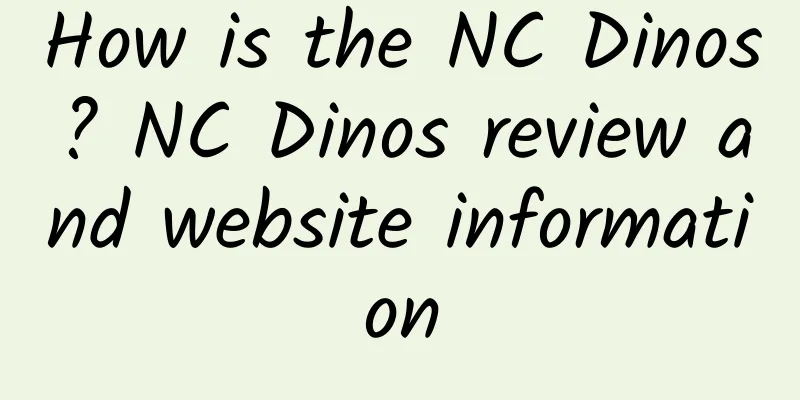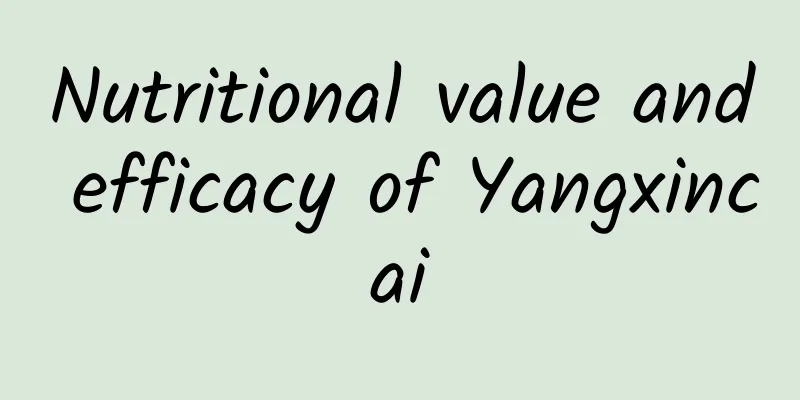Official website of the Danish government: a comprehensive window to understand Denmark
The Official Website of Denmark (denmark.dk) is the official portal of the Kingdom of Denmark, providing users with comprehensive information about Danish government agencies, functions, leaders' speeches, agendas, current affairs and related links. The website supports four languages: English, French, German and Spanish, making it convenient for global users to access and learn about the latest developments in Denmark.
Function and content of the Danish government website
The official website of the Danish government is a comprehensive information platform that aims to provide transparent, authoritative and comprehensive information about the Danish government to domestic and foreign users. The following are the main functions and contents of the website:
- Introduction to Institutional Structure and Functions : The website provides a detailed introduction to the various institutions and functions of the Danish government, including the Prime Minister's Office, ministries, parliament, etc., to help users understand the organizational structure and operating mechanism of the Danish government.
- Leaders’ speeches and policy interpretations : The website regularly publishes speeches and policy interpretations from the Danish Prime Minister, ministers and other leaders to help users understand the latest policies and positions of the Danish government.
- Agenda and meeting information : The website provides the agenda and meeting information of the Danish Parliament, including meeting times, topics and resolutions, making it easier for users to follow the decision-making process of the Danish government.
- Current affairs news and press releases : The website updates Denmark's current affairs news and press releases in real time, covering multiple fields such as politics, economy, society, and culture, providing users with the latest Danish developments.
- Related links and resources : The website provides links to other websites and resources related to the Danish government, including Danish embassies and consulates abroad, international organizations, educational institutions, etc., so that users can easily obtain more information.
Denmark's political system and national symbols
Denmark has a single-chamber parliament under a constitutional monarchy. The royal family is a symbol of the state and does not directly exercise executive power. The Danish monarch is the head of state, but the real power lies in the hands of the prime minister. Here are some key points about the Danish political system:
- Constitutional Monarchy : Denmark is a constitutional monarchy. As head of state, the monarch mainly performs symbolic and ceremonial duties and does not participate in day-to-day administrative affairs.
- Parliamentary system : Denmark has a unicameral parliamentary system. The Folketing is the country's legislative body, consisting of 179 members, responsible for making laws and supervising the government.
- Prime Minister and Cabinet : The Prime Minister of Denmark is the de facto leader of the government and is elected by the majority party or coalition of parties in Parliament. The Prime Minister leads the Cabinet and is responsible for the country's administrative affairs.
- Local government : Denmark is divided into five regions and 98 municipalities. Local governments have greater autonomy in areas such as education and healthcare.
Geography and Culture of Denmark
Denmark is located on the Jutland Peninsula and nearby islands in northern Europe. Its capital, Copenhagen, is the political, economic and cultural center of Denmark. The following are some characteristics of Denmark's geography and culture:
- Geographical location : Denmark consists of the Jutland Peninsula and more than 400 islands. It is bordered by the North Sea to the north, the Baltic Sea to the east, and Germany to the south. It has a superior geographical location.
- Climate : Denmark has a temperate maritime climate with four distinct seasons, mild winters and cool summers, making it suitable for living and traveling.
- Official Language : The official language of Denmark is Danish, but English is widely spoken in Denmark, especially in education and business.
- Cultural characteristics : Denmark has a rich cultural heritage, including literature, music, architecture and design. Denmark is the hometown of the fairy tale master Andersen and is also a world-renowned design kingdom.
Economy and society in Denmark
Denmark is a highly developed economy, known for its high living standards, comprehensive social welfare and sustainable development model. The following are some characteristics of Denmark's economy and society:
- Economic structure : Denmark's economy is dominated by the service industry, with industry and agriculture also playing an important role. Denmark is the world's leading exporter of wind energy technology and a world-renowned producer of food and medicine.
- Social welfare : Denmark has a complete social welfare system, including free medical care, free education and unemployment benefits, ensuring a high quality of life for its citizens.
- Environmental protection : Denmark is a pioneer in environmental protection and is committed to developing green energy and sustainable technologies. Denmark's goal is to achieve carbon neutrality by 2050.
- Education system : Denmark's education system is known for its high quality and free of charge. All education from primary school to university is free to the public.
Denmark's international relations and foreign policy
Denmark is an active international player, committed to promoting global peace and development through diplomatic cooperation and international organizations. Here are some characteristics of Denmark's international relations and foreign policy:
- EU member state : Denmark is a member state of the EU and actively participates in EU affairs and promotes the process of European integration.
- NATO Member : Denmark is one of the founding members of NATO and is committed to maintaining security and stability in Europe and the North Atlantic region.
- UN Participation : Denmark is an active member of the United Nations and supports various UN initiatives, including the Sustainable Development Goals and the climate change agenda.
- Foreign Aid : Denmark is one of the world's major providers of foreign aid, committed to helping developing countries improve their economic and social conditions.
Travel and cultural experience in Denmark
Denmark is a fascinating tourist destination with rich historical sites, beautiful natural landscapes and unique cultural experiences. Here are some highlights of Denmark’s tourism and culture:
- Copenhagen : Denmark's capital, Copenhagen, is one of the most popular tourist cities in Northern Europe, with famous attractions such as the Little Mermaid Statue, Amalienborg Palace and Tivoli Gardens.
- Andersen's Hometown : Denmark is the hometown of the fairy tale master Andersen. Visit Andersen's former residence and museum to feel the charm of the fairy tale world.
- Danish Design : Denmark is world-famous for its design. Visitors can visit the Danish Design Museum to admire the world-renowned Danish furniture and industrial design.
- Nature : Denmark has beautiful nature, including beaches, forests and lakes, making it ideal for hiking and cycling.
Denmark's technological innovation and future development
Denmark is a pioneer in scientific and technological innovation, committed to promoting economic growth and social progress through scientific and technological innovation. The following are several directions for Denmark's scientific and technological innovation and future development:
- Green Energy : Denmark is a global leader in green energy and is committed to developing renewable energy such as wind, solar and biomass.
- Digital transformation : Denmark is actively promoting digital transformation and improving economic efficiency and social service levels through the development of information technology and artificial intelligence.
- Life Sciences : Denmark is an important country in the field of life sciences, with world-leading pharmaceutical and biotechnology companies.
- Sustainable Development : Denmark is committed to achieving the Sustainable Development Goals and promoting environmental protection and social equity through innovative technologies and policies.
Social welfare and quality of life in Denmark
Denmark is well-known for its high welfare and high quality of life. Its citizens enjoy comprehensive social security and a high level of quality of life. The following are some aspects of Denmark's social welfare and quality of life:
- Free medical care : Denmark has a universal free medical care system, and all citizens can enjoy high-quality medical services.
- Free education : Denmark's education system is free from primary school to university, ensuring that every citizen can receive a good education.
- Unemployment benefits : Denmark's unemployment benefit system provides financial support to the unemployed to help them find new employment.
- High quality of life : Denmark's quality of life is among the best in the world, and its citizens enjoy a good work-life balance.
Danish culture and art
Denmark has a rich cultural heritage and artistic tradition and is an important contributor to the global cultural landscape. Here are a few highlights of Danish culture and art:
- Literature : Denmark is the hometown of the fairy tale master Hans Christian Andersen. Andersen's fairy tales have been translated into many languages and have a far-reaching influence.
- Music : Denmark has a rich musical tradition, including classical music, jazz and pop music, and Danish musicians are highly regarded both at home and abroad.
- Architecture and Design : Danish architecture and design are known for their simplicity and functionality, and the work of Danish architects and designers is widely acclaimed around the world.
- Film and Theatre : Denmark has a well-developed film and theatre industry, and Danish directors and actors have won numerous awards at international film and theatre festivals.
Education and research in Denmark
Denmark has a world-class education system and scientific research institutions, which provide strong support for the country's scientific and technological innovation and economic development. The following are some characteristics of Danish education and scientific research:
- Higher Education : Denmark's higher education system is known for its high quality and free of charge, and Danish universities are ranked among the best in the world.
- Research institutions : Denmark is home to a number of world-renowned research institutions, including the Technical University of Denmark and the University of Copenhagen, which have made important breakthroughs in many fields.
- Innovative environment : Denmark's scientific research environment encourages innovation and interdisciplinary collaboration, and provides good working conditions and support for researchers.
- International cooperation : Danish research institutions work closely with international partners to promote global scientific and technological progress.
Sports and leisure in Denmark
Denmark is a country that loves sports and leisure activities. Sports play an important role in Danish culture and social life. Here are some highlights of Danish sports and leisure:
- Football : Football is the most popular sport in Denmark, and the Danish national football team performs well in international competitions.
- Handball : Handball is a traditional sport in Denmark, and the Danish national handball team has won the world championship many times.
- Bicycle : Denmark is the kingdom of bicycles. Bicycles are not only a means of transportation, but also a favorite leisure activity for Danes.
- Outdoor activities : Denmark has rich outdoor activity resources, including hiking, camping and sailing, which attracts a large number of tourists and outdoor enthusiasts.
Danish food and food culture
Danish cuisine is famous for its unique flavor and healthy ingredients. Danish food culture reflects the Danish people's love and pursuit of food. The following are some characteristics of Danish food and food culture:
- Open Sandwich : Danish open sandwich (Smørrebrød) is a traditional Danish food, known for its rich ingredients and exquisite presentation.
- Danish Pastry : Danish Pastry is a world-famous dessert, loved by diners all over the world for its crispy texture and rich fillings.
- Seafood : Danish seafood is famous for its freshness and deliciousness. Denmark is a major producer of seafood from the North Sea and the Baltic Sea.
- Organic food : Denmark is a leading country in the world in organic food. Danes pay attention to healthy eating and choose organic ingredients.
Traditional festivals and celebrations in Denmark
Denmark has a rich tradition of festivals and celebrations that reflect Denmark's history, culture and religious beliefs. Here are some highlights of Denmark's traditional festivals and celebrations:
- Christmas : Christmas is one of the most important holidays in Denmark, and Danes celebrate this holiday by decorating Christmas trees, exchanging gifts and enjoying Christmas dinner.
- Easter : Easter is another important holiday in Denmark, which the Danes celebrate with painted eggs and the Easter bunny.
- Midsummer : Midsummer is a traditional Danish festival where Danes celebrate the arrival of the summer solstice with bonfires and dancing.
- National Day : Denmark's National Day (Constitution Day) is an important festival in Denmark, where Danes celebrate the Danish constitution and democratic system through parades and celebrations.
Transport and infrastructure in Denmark
Denmark has developed transportation and infrastructure, providing convenient travel and living conditions for citizens and tourists. The following are some characteristics of Denmark's transportation and infrastructure:
- Public transportation : Denmark has a well-developed public transportation system, including subways, buses, trains and ferries, covering major cities and villages across the country.
- Bicycle lanes : Denmark has a well-developed network of bicycle lanes, and bicycles are one of the main modes of transportation for Danes.
- Airports and Ports : Denmark has several international airports and ports, connecting to all corners of the world and facilitating international travel and trade.
- Infrastructure : Denmark has a well-developed infrastructure, including electricity, communications, water supply and sewage treatment, which ensures a high quality of life for its citizens.
Immigration and multiculturalism in Denmark
Denmark is a multicultural country that has attracted immigrants from all over the world, enriching Danish society and culture. Here are some characteristics of Danish immigration and multiculturalism:
- Immigration policy : Denmark's immigration policy aims to attract highly skilled immigrants while ensuring social integration and the development of multiculturalism.
- Multiculturalism : Denmark's multiculturalism is reflected in many aspects such as language, religion, food and art. Danish society is open and tolerant to different cultures.
- Social integration : The Danish government helps immigrants integrate into Danish society and promotes social harmony through measures such as education, employment and social services.
- Cultural Festivals : Denmark holds a variety of cultural festivals and events to showcase the characteristics of different cultures and promote cultural exchange and understanding.
Denmark's future prospects
As a highly developed country, Denmark is committed to promoting the country's future development through scientific and technological innovation, sustainable development and international cooperation. The following are several directions for Denmark's future outlook:
- Green transformation : Denmark will continue to promote green energy and sustainable development and strive to become a global leader in green transformation.
- Digital transformation : Denmark will accelerate digital transformation, improve economic efficiency and social service levels, and promote the development of the digital economy.
- International cooperation : Denmark will continue to actively participate in international cooperation, promote global peace and development, and respond to global challenges.
- Social welfare : Denmark will continue to improve its social welfare system to ensure high quality of life and social equity for its citizens.
The official website of the Danish government (denmark.dk) is an authoritative platform for understanding Denmark. Through this website, users can fully understand Denmark's politics, economy, culture, society and international relations. Whether scholars, tourists or people interested in Denmark, they can obtain valuable information through this platform and gain a deeper understanding of the unique charm of this Nordic country.










